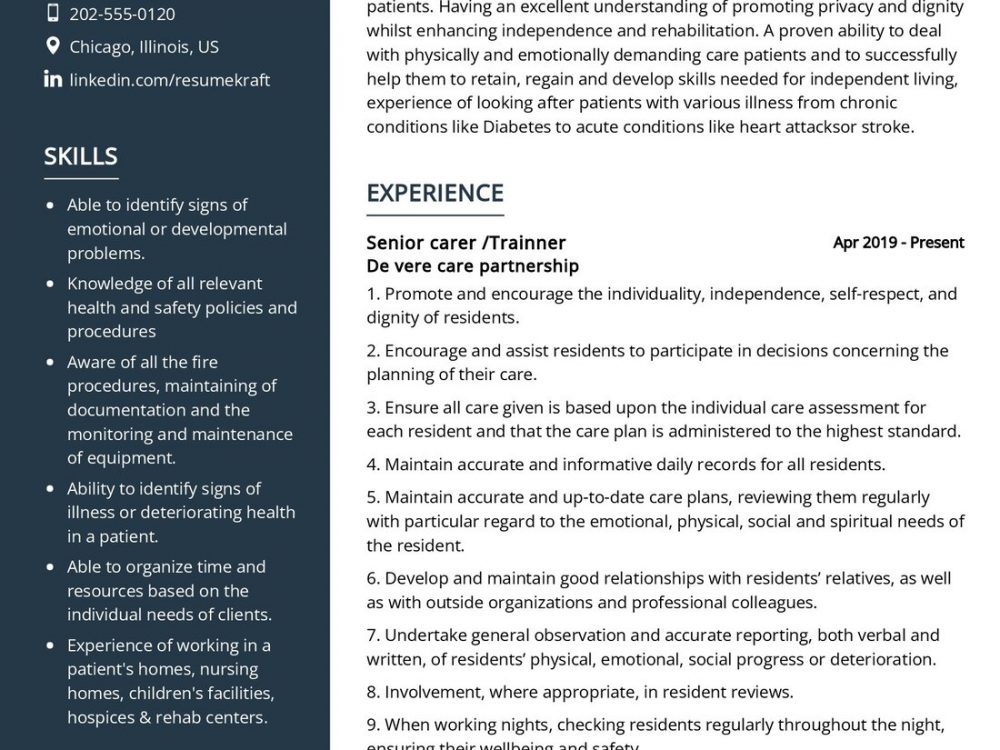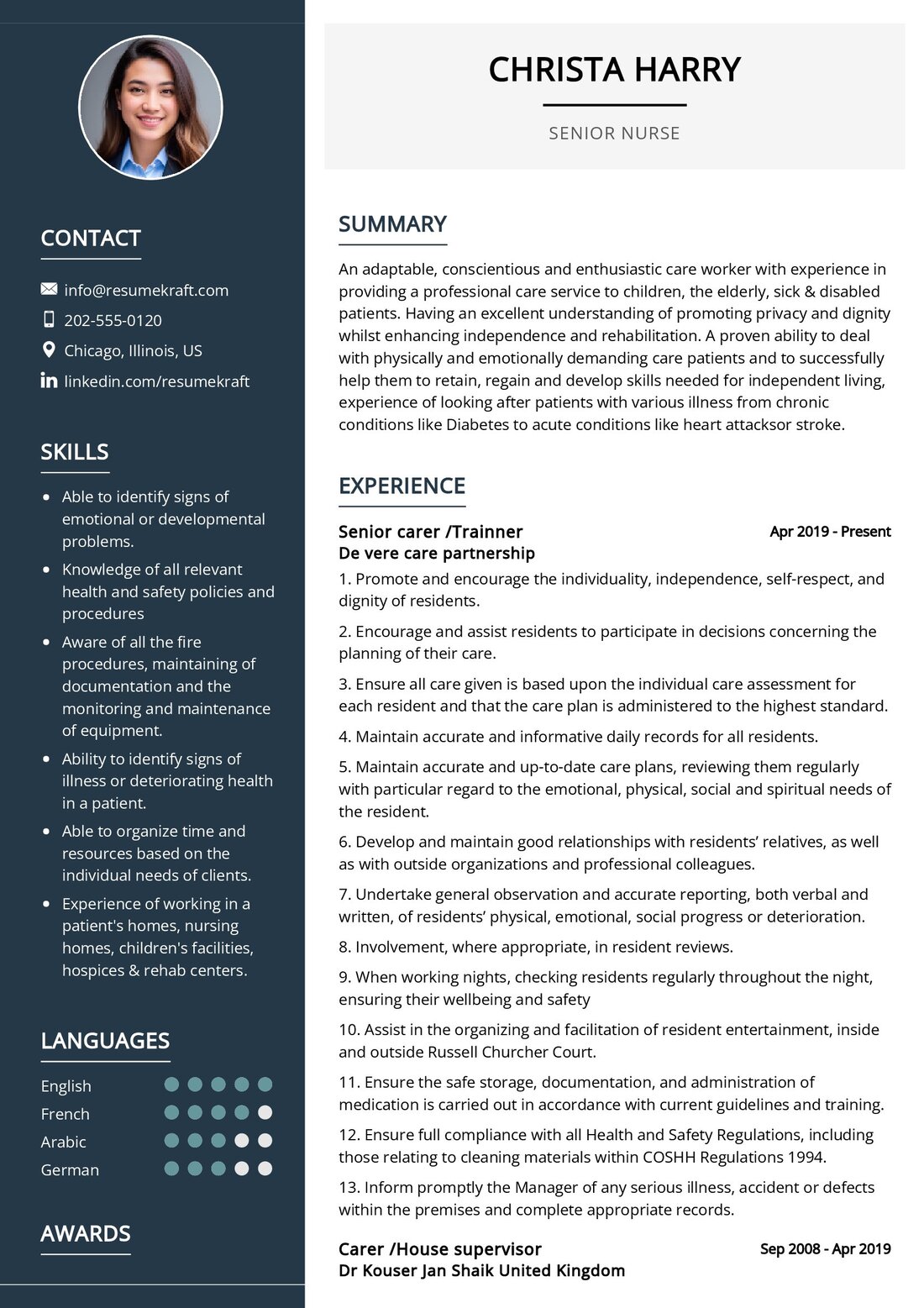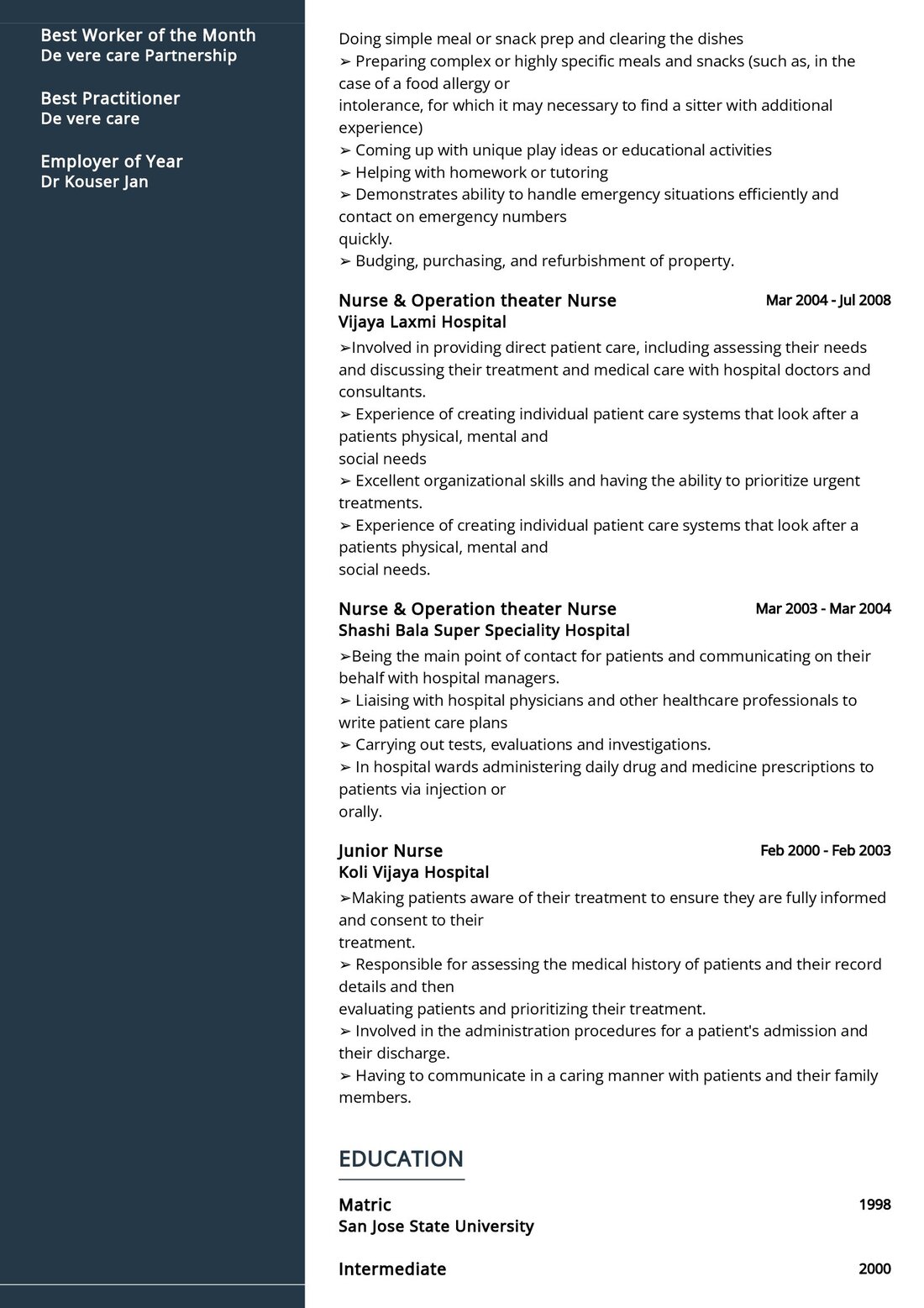What is the Role of a Senior Nurse?
In the vast and intricate world of healthcare, the role of a Senior Nurse stands out as one of immense responsibility and expertise. A Senior Nurse is not just a caregiver; they are leaders, educators, and advocates for both patients and junior nursing staff. Let’s delve deeper into the multifaceted role of a Senior Nurse, a position that demands a blend of clinical expertise and leadership skills.
A Senior Nurse oversees patient care, ensuring that it meets the highest standards of quality and safety. They mentor and guide junior nurses, fostering a culture of continuous learning and professional growth. Their role extends beyond patient care; they collaborate with doctors, therapists, and other healthcare professionals to develop and implement comprehensive care plans. Moreover, they play a pivotal role in healthcare administration, contributing to policy formulation, and ensuring compliance with healthcare regulations.
What are the Senior Nurse Job Requirements?
Being a Senior Nurse is a role of honor, demanding a blend of academic qualifications, hands-on experience, and soft skills. Here’s a closer look at the prerequisites for this esteemed position:
- A Bachelor’s or Master’s degree in Nursing, showcasing a solid foundation in the field.
- State licensure as a Registered Nurse (RN).
- Several years of clinical nursing experience, with a track record of excellence.
- Leadership skills, often honed through experiences and additional training or certifications.
- Proficiency in using healthcare IT systems and electronic health records (EHR).
- Strong communication skills, vital for interdisciplinary collaboration and patient education.
Additional certifications in specialized areas of nursing or healthcare administration can further enhance a Senior Nurse’s profile.
What are the Responsibilities of a Senior Nurse?
The day in the life of a Senior Nurse is filled with diverse responsibilities, each demanding a unique skill set. Here’s a snapshot of their typical duties:
- Overseeing patient care, ensuring it aligns with best practices and patient needs.
- Mentoring and training junior nursing staff, fostering professional growth.
- Collaborating with an interdisciplinary team to develop patient care plans.
- Administering medications, monitoring patient reactions, and documenting treatment plans.
- Engaging in healthcare administration, contributing to policy development, and ensuring compliance.
- Participating in research initiatives, contributing to the advancement of nursing science.
Each responsibility underscores the Senior Nurse’s commitment to excellence in patient care and healthcare leadership.
Senior Nurse Resume Writing Tips
When crafting a resume for a Senior Nurse position, it’s essential to highlight both clinical expertise and leadership experiences. Here are some tailored tips to guide you:
- Emphasize your clinical experiences, detailing the types of care settings and patient populations you’ve worked with.
- Highlight leadership roles, such as mentoring, training, or administrative responsibilities you’ve undertaken.
- Detail any specialized certifications or training, showcasing your commitment to continuous learning.
- Include metrics to quantify your achievements, such as patient satisfaction scores or improvements in clinical outcomes.
- Personalize your resume for the specific role, ensuring it aligns with the job description and showcases your unique fit.
Senior Nurse Resume Summary Examples
Your resume summary is a concise snapshot of your professional journey. Here are some examples tailored for a Senior Nurse:
- “Senior Nurse with over 12 years of clinical experience, specializing in pediatric care. Proven leader with a track record of mentoring junior staff and improving patient care outcomes.”
- “Dedicated Senior Nurse with expertise in critical care settings. Adept at interdisciplinary collaboration and passionate about patient education and advocacy.”
- “Experienced Senior Nurse with a focus on geriatric care. Skilled in developing and implementing patient-centered care plans, with a commitment to continuous professional growth.”
Create a Strong Experience Section for Your Senior Nurse Resume
Your experience section is a testament to your journey in the nursing field. Here are some examples to inspire you:
- “Led a team of 20 nurses in a high-paced ICU, achieving a 15% improvement in patient satisfaction scores over two years.”
- “Implemented a new patient education program in a community hospital, resulting in a 25% decrease in readmission rates.”
- “Collaborated with an interdisciplinary team to develop a comprehensive care plan for patients with chronic illnesses, improving long-term outcomes.”
Sample Education Section for Your Senior Nurse Resume
Your educational background lays the foundation
for your clinical expertise. Here’s a sample section:
- M.Sc. in Nursing, Johns Hopkins University, Baltimore, MD, 2018
- B.Sc. in Nursing, University of Pennsylvania, Philadelphia, PA, 2014
- Certified Nurse Leader, American Association of Colleges of Nursing, 2016
Senior Nurse Skills for Your Resume
Soft Skills:
- Leadership and team management
- Effective communication
- Problem-solving
- Empathy and patient advocacy
- Time management
Hard Skills:
- Clinical expertise in specialized areas
- Proficiency in healthcare IT systems
- Knowledge of healthcare regulations
- Research and evidence-based practice
- Advanced patient assessment
Most Common Mistakes to Avoid When Writing a Senior Nurse Resume
Here are some pitfalls to steer clear of:
- Using a generic template without tailoring it to the specific role.
- Listing job duties without highlighting achievements and leadership roles.
- Ignoring the cover letter, a crucial tool to introduce yourself and your aspirations.
- Overloading the resume with medical jargon without explaining its relevance to the role.
- Not proofreading, which can lead to avoidable errors and a less polished presentation.
Key Takeaways for Your Senior Nurse Resume
As you craft your Senior Nurse resume, remember to:
- Highlight your clinical and leadership experiences, showcasing your journey’s breadth and depth.
- Personalize your resume, ensuring it aligns with the specific role and institution you’re applying to.
- Include metrics and tangible achievements, painting a picture of your impact in previous roles.
- Stay updated with the latest trends in nursing, showcasing your commitment to the profession.
Finally, feel free to utilize resources like AI Resume Builder, Resume Design, Resume Samples, Resume Examples, Resume Skills, Resume Help, Resume Synonyms, and Job Responsibilities to create a standout application and prepare for the Senior Nurse job interview.
With these insights and tools at your disposal, you’re well-equipped to craft a compelling resume that captures your journey, skills, and aspirations as a Senior Nurse. Best wishes on your job search!



